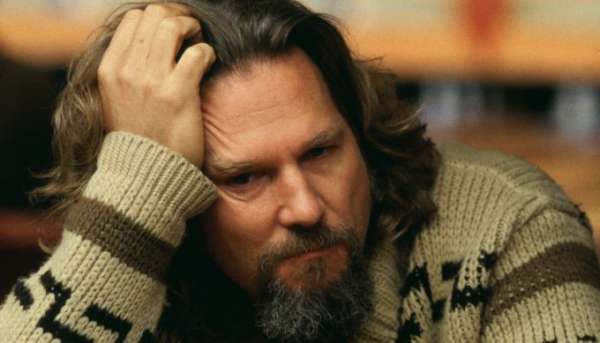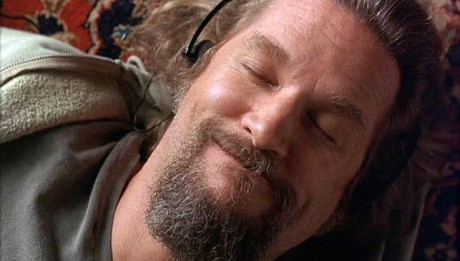Good bad interview
It will be a short story about great laziness.
It so happened that the task of finding people in the team fell on the project manager. And the role of the project manager fell on me. This is a story of my life ...

How do well-read, productive people who strive to become professionals in their field work in this case?
They begin to study hiring theory, psychology, personality types, motivation systems ... To correspond to reality, they change themselves.
And what will a lazy person do?
Right! He will change reality, just not to change and do nothing himself.
And here is a short excursion to one of my worlds like this.
Good interview
But in my opinion, the best interview is a regular dialogue.
This feeling is "good talk."
This is an opportunity to look at yourself from the outside, to remember what you want from life, to formulate expectations and try on the offered vacancy on them.
This is a process filled with awareness and reflection, and not tests for personality types and logical puzzles at the IQ level.
And with great and undisguised skepticism I treated all hr, and even more so in it.
Reality
And I continued to “just talk” until I suddenly came across a difficult situation - finding a testing specialist.
I found that the tester in the product startup team combines a lot of roles. From the user’s view of the product, to writing simple queries, analyzing sniffer logs and participating in the organization of the production process. There was a suspicion that on the first attempt I would not find a person.
And so, after 5 interviews, I got 5 different stories, which were not possible to compare with each other.
Chatting with a person is easy.
But to learn professional skills, a penchant for self-education, communication skills and the ability to work as a team, cultural and moral values ... but at the same time, it’s much more difficult not to slip into the survey on a checklist, but to keep the feeling of a lively conversation. In this case, the result of the interview should be repeatable. Otherwise, this is not a professional hiring, but the portrait of each candidate will depend on whether we recall the necessary questions or get carried away talking about his pets.
It was necessary to bring the conversation to some common denominator. And then I got the following list of questions:
Questions
Profession
Why do you need a specialist in your profession? What is his role? What is responsible for?
In other words, the question is about the result that the applicant gives out. We determine his view of his role. We understand what to expect from him.
Is there an understanding of the level of development of the tester: junior, middle, senior? What should a specialist be able to do at each stage? At what level do you feel? What do you need to go above?
Does a person think about his professional growth or if he entered the profession by chance. If there is an understanding of what stages are ahead, then, apparently, I thought about my development and prospects. We understand whether the company will be able to give the necessary growth to the applicant and how he will be able to grow with him.
What kind of “good” specialist is he in your profession? Which is “bad”?
What criteria does a specialist live for, and do they coincide with ours.
How did you get into the profession? What were you guided by?
See the starting point. Consciously or not, he came into the profession. Compare with current attitude to work.
Why is it still in the profession? What do you like key?
Any profession has its own areas and specializations. We are trying to see what the candidate is inclined to.
Has the idea and understanding of the profession changed from the beginning of work to today?
As far as a person thinks to himself in the profession. Is there any growth.
What books, articles, documents allowed to develop in this profession? How did this happen? Which will help move on to the next stage?
We look at the interest in the profession at the training level.
work experience
How did you get to your last job?
What role, function performed? Did it change during the work (from the first day to the current)?
Again about understanding the product of your profession. Trying to see human productivity.
Who did you communicate with on the team? With whom was it easy to communicate, and with whom was it difficult? Why?
Social communication is very important. Is it a conflict? What can cause negative emotions.
How was the work process organized: common (with whom did you collaborate, where did the tasks come from, who is the boss, how was the work evaluated, and by whom ...) and the private candidate (what tools did you use, how did you keep the documentation, ...)?
An important question is systematic. Whether it relates to work as a professional, whether it builds a process or simply performs functions. Organizational functions. Upside potential.
If another employee comes after you, how long will it take him to begin to fulfill your duties?
And again about systematic work and professionalism.
What difficult tasks did you have to perform?
We look at a professional level. What is difficult for a person. Which regards as achievements.
What tasks did you like and dislike? Why?
Specialization.
What are the main difficulties in this workplace?
Looking back, what would I like to improve on this job?
Does the person reflect on his work. Thoughtful this change of job or spontaneous. Understand whether he will find himself in our vacancy.
If this is not your profession, then what would you do?
Bad interview
Probably, according to many (especially representatives of the profession), this is still a naive and primitive approach. There is not a single conversion funnel, no portrait of the candidate, no personality types ... just talk.
But this approach worked, then stopped, and now started again.
I think there is still a lot of work ahead, but the main thing is not to be superfluous.
Thank you and have a nice day.

All Articles